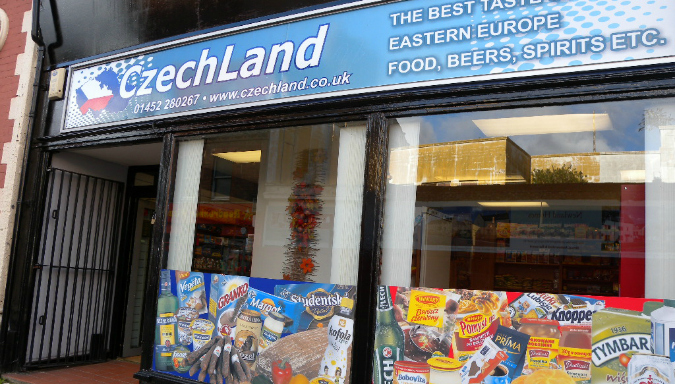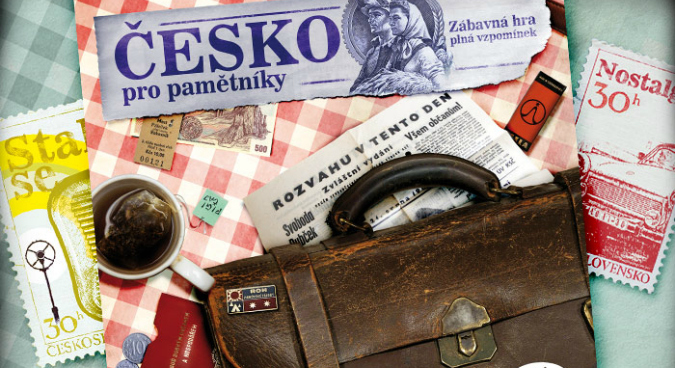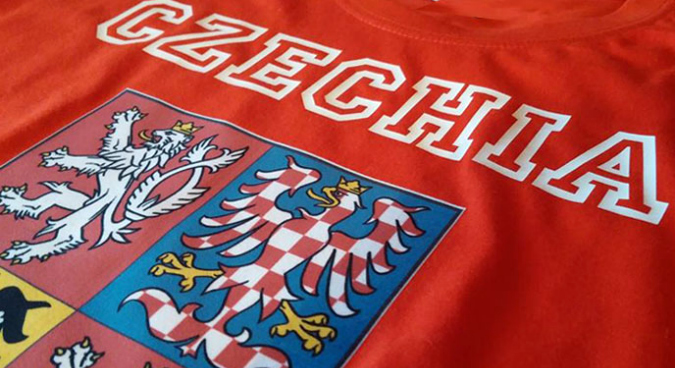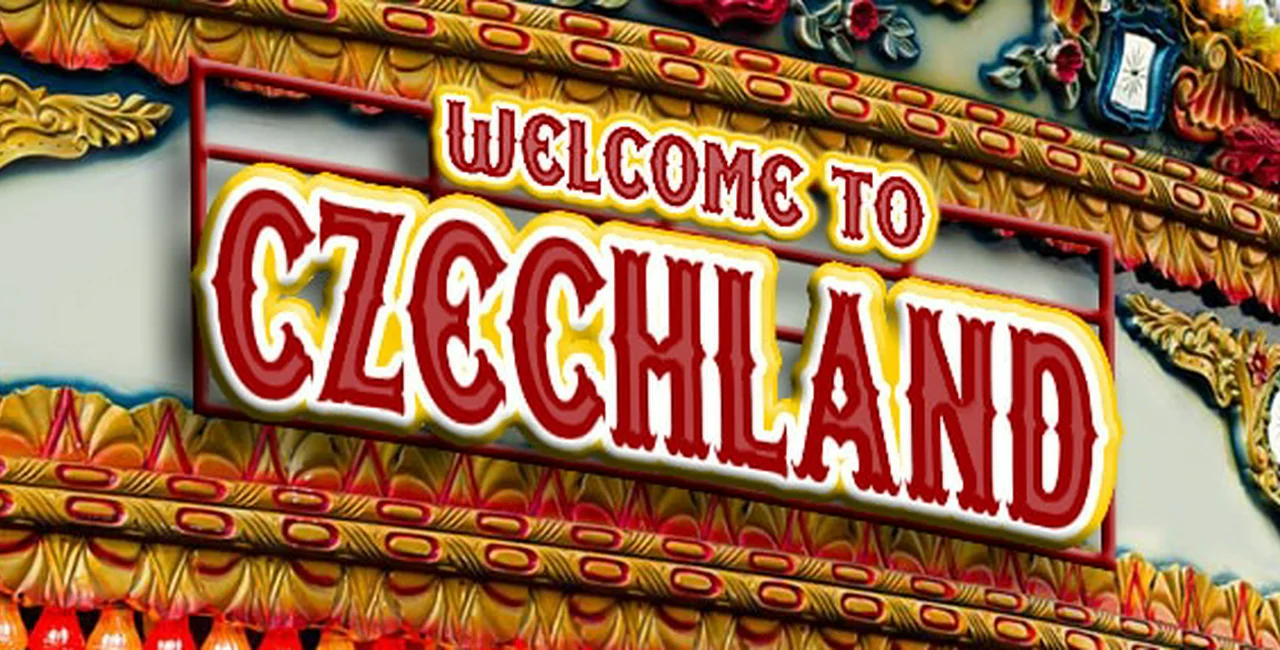A geographical, or short name, for the Czech Republic was proposed soon after its formation. On January 3, 1993, then Minister of Foreign Affairs, Josef Zieleniec, told journalists in New York that the country’s new name would be either Česko or Českozemsko, Czechia or Czechland in English.
Late last year President Zeman expressed his approval of the use of the word “Czechia” during a visit to Israel. He said the name “sounded more beautiful than the cold title of ‘Czech Republic’.” Yet, the English short name remains little used and has not been officially recognized.
Not proper English?
A spokesperson for the British Embassy said that all British diplomats and local employees use “Czech Republic”. The spokesperson got the following answer from an unnamed respondent: “I haven’t heard anyone using Czechia. It doesn’t really work very well in English in my opinion.”
An unnamed source at the American Embassy said, “The State Department has no official position on how countries are named or how they choose to be named. It’s up to the individual countries.”
The source went on to say, “The Czech Republic is a fine name and has a certain gravitas. I don’t think there is anything wrong with the Czech Republic.”
Sales Lead: High-Performance Computing & AI

Sales Lead | High-Performance Computing & AI

Associate professor Jiří Felix and Dr. Leoš Jeleček, members of the Civic Initiative Czechia, continue to debunk the idea that Czechia is not proper English. (What about Slovakia? they have argued.) As to the suggestion that the name is reminiscent of Hitler’s anglicization for the Czech lands, they note that Česko appears in the title of the 1777 document Tak vidíme při zemích německých Česko, Moravu, Rakouské Slezsko. According to the Institute of the Czech Language the word was a synonym for Bohemia. The name Czechia was used in Latin texts from the 17th century and can be found here in St. James’ Church. The first use in an English text was 1866.
“A geographical name is terribly important for each country,” says Felix. “We were a kingdom. Today we are a republic. Tomorrow we can be I don’t know what.”
Jeleček adds, “It expresses the continuity of a given state in time and space.”
And given the practical problems which the lack of a geographical name create – when discussing the history of the region which includes Bohemia, Moravia and part of Silesia you either switch between the political names or say “in the region that would become/that is today the Czech Republic” – a geographical name offers a simple solution to anachronisms such as “16th century in the Czech Republic.”

A Gloucester shop / www.fourgatesofgloucester.co.uk
“Slugs crawl over my skin a little when I hear that word”
For Czechs, the name was wildly unpopular from the start. According to a Mladá Fronta Dnes poll from December 1993, two thirds of Czechs would not use the name. They gave a variety of reasons from its sound (“It is ugly”), to the fact that it “ignored Moravia and Silesia”.
This type of argument provokes a strong reaction from Felix. “Here is the worst specialization of this approach – this capriciousness. ‘I like it; I don’t like it.’ Please, how is that an argument?” he said.
One of the biggest opponents to the name Česko was president Václav Havel who was quoted as saying “Slugs crawl over my skin a little when I hear that word.”
Ladislav Špaček, Havel’s former media spokesperson who supports the use of the name Česko, said he tried to convince the former president but to no avail. “You know, perhaps in it was the bitter reminder of the separation of a unified state. His generation regarded the name Česko as the torso from the former Czechoslovakia,” he said via email.

The popular Česko board game series /alibi.cz
“From the beginning he enjoyed great prestige and what he said was believed,” Felix said in regards to Havel’s role in preventing the widespread use of the name.
In the early days following the dissolution of Czechoslovakia, some parliamentarians showed approval for the name. Jiří Vlach, a former Civic Democratic MP and Pavel Tollner, a parliamentarian for KDU-ČSL voiced support, but he wasn’t the president.
Nowadays, the name appears to be a non-issue for the major political parties.
‘Made in Czech’ – so wrong
In recent years, Česko has become more widely used and as of 2009 appeared in the official Czech list The Names of States and their Territorial Parts (Jména států a jejich územních částí). You would think that the resistance to Česko would have caused its equivalent in other languages to be overlooked. Yet French (Tchéquie), German (Tschechien) and Spanish (Chequia) have widely used one word names for the country. English remains the holdout.
Whether people like this name or not, an unofficial short name is appearing anyway in the form of ‘Czech’. Neither Felix nor Jeleček approve of this use.
“Made in Czech?” Jeleček says of one of the name’s most common usages. “We understand that as we are making it in a Czech person,”
When asked whether the flexibility of English would make this less of a problem, neither man was convinced. For them Czechia remains the only proper English name.

Czechia jersey / www.czechia-initiative.com
The name may get a boost with the upcoming publication of a new edition of the Student Atlas of World Politics. One of the authors, Dr. Christopher Sutton, explained the decision to use this name.
“While understanding that use of the term isn’t fully adopted in the Czech Republic or by the U.S. government, there were a few factors that made its use appealing. First, the rationale for the request was sound and based on efforts within the country for acceptance of Czechia. Second, from the point of view of the users of the atlas (who are American college students), there is symmetry by using Czechia with the use of Slovakia (which officially is the Slovak Republic).”
Given the February 2014 MSNBC map gaffe, in which an erroneous infographic put Czechoslovakia back on the map, the fight for Czechia may still have a long way to go.
**
What are your thoughts on the use of Czechia to describe the Czech lands?












 Reading time: 5 minutes
Reading time: 5 minutes 

 Slovak
Slovak





















